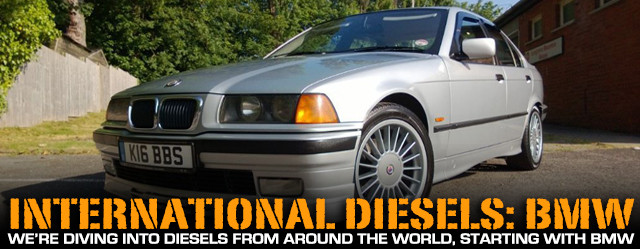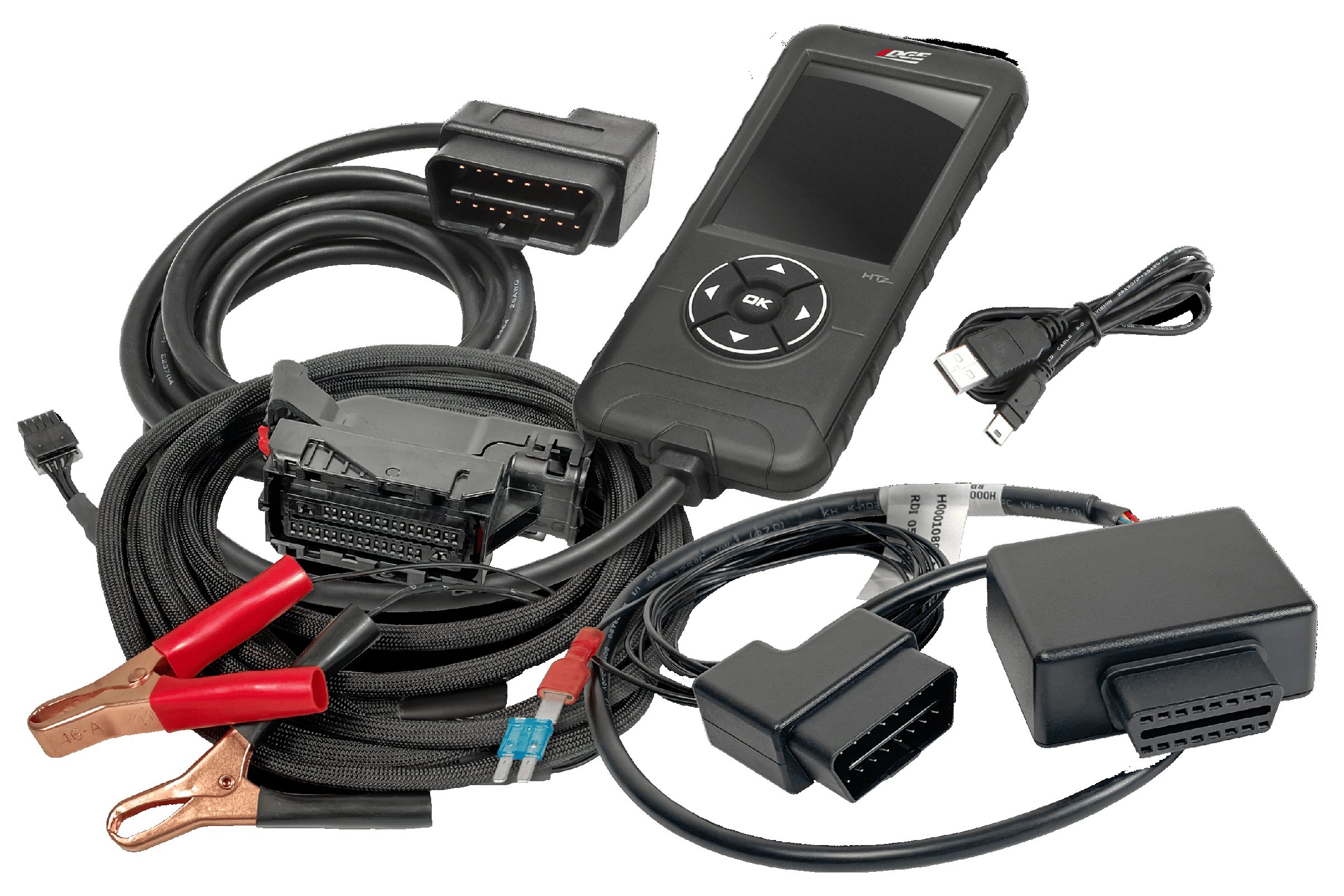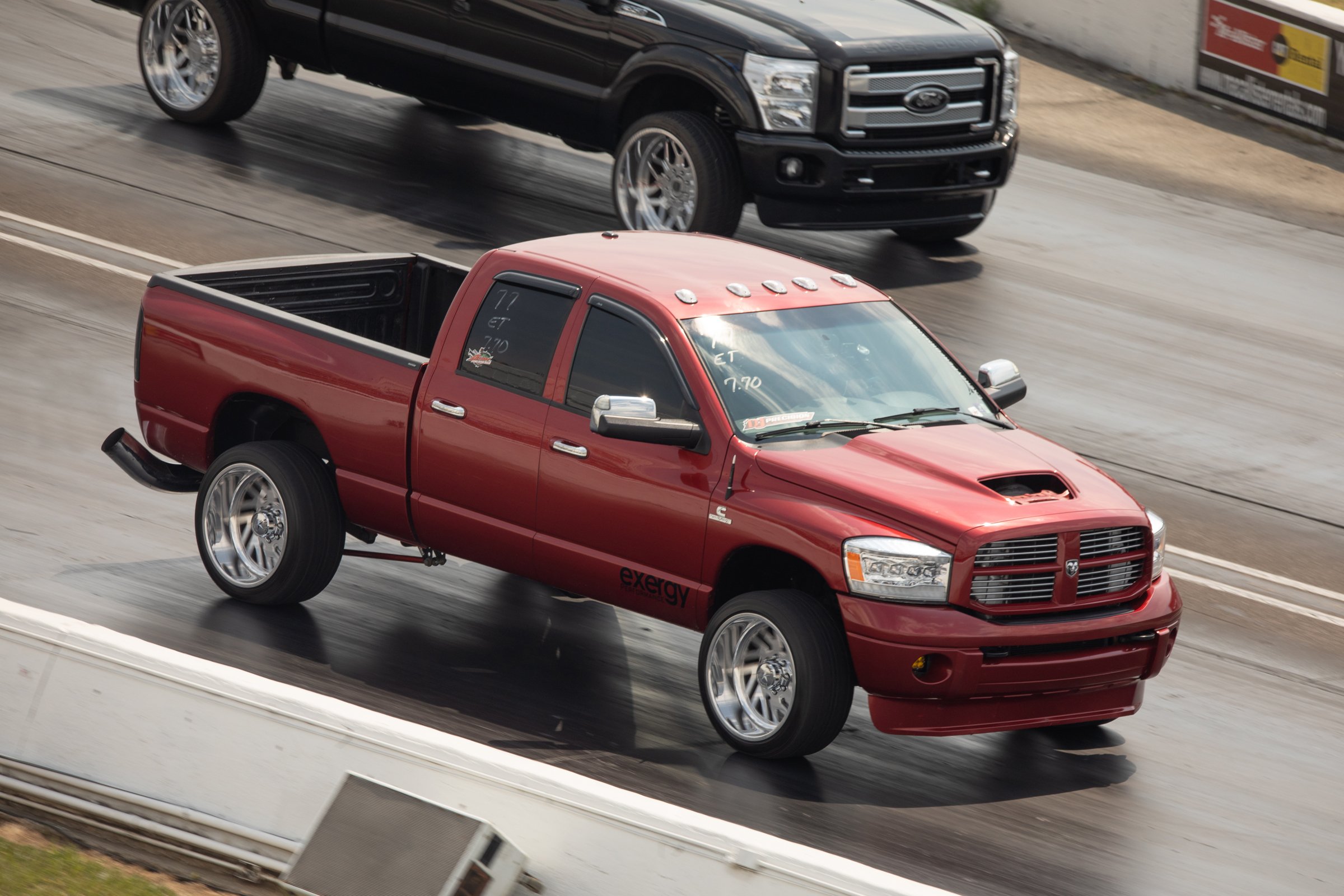Here in the United States, we think we have diesels all figured out – your three-quarter-ton trucks all run on either Power Stroke, Cummins, or Duramax platforms (we’ll tack on EcoDiesel too for the half-tons, why not), and anything above those is a toss-up between Caterpillar, Cummins, or International-made units. But those engines are just a fraction of the wealth of diesel powerplants available in the entire world. Many other manufacturers have been tinkering with diesels for decades, and one of them will be the focus of today’s article: Bayerische Motoren Werke, better known by its acronym, BMW.
When you think of BMW, you think of sleek sedans and powerful gas-powered motors parading around middle managers and lawyers around town. But BMW has had its hands in diesel development for quite some time, and we thought it would be interesting to check out what the automaker had to offer as far as oil burners were concerned. So let’s start off with its straight-three platform, the B37.
BMW Straight-Three: B37
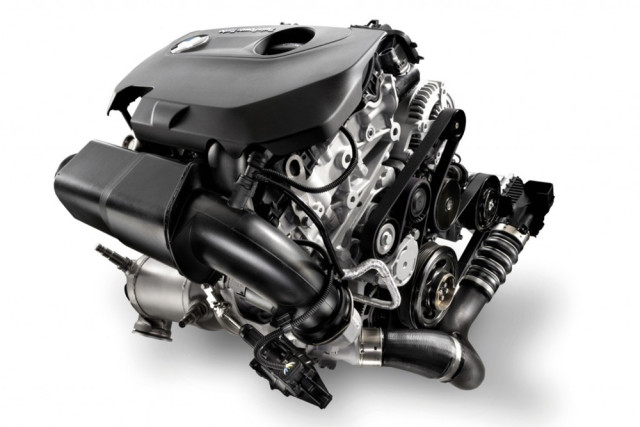
The B37. Photo: Bimmer Today
Inline-three engines are something of an unknown here in the USA. Ford makes the 1.0-liter EcoBoost for none but its smallest options, and Smart offers a three-pot unit for some of its ForTwos. Yet these engines see a lot of use overseas, where the cost to own vehicles is markedly higher than here in the States for a variety of reasons including fuel costs, registration, and taxes.
Naturally, you’re not going to see a great deal of oomph shooting out from a three-cylinder motor, owing to a limit of practical displacement (in the case of the B37, it’s just 1.5 liters). As such, it’s suited for subcompact and small sedans in BMW’s lineup, and comes in two versions: one that generates 94hp, and one that generates 114hp.
Inline-Four: M41, M47, N47, And B47
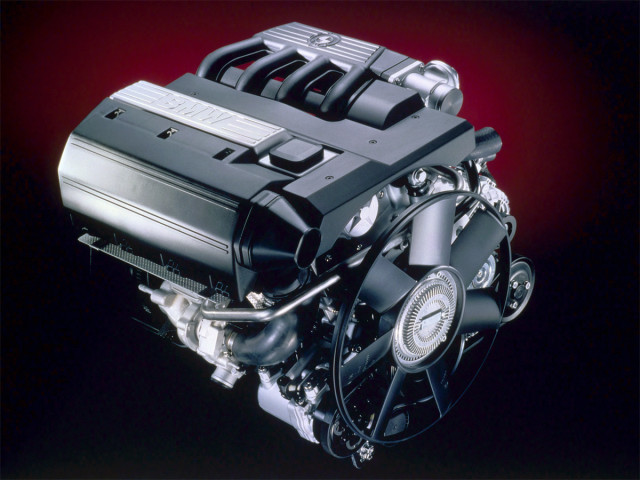
The M41. Photo: BMW Group
The first one covers the 214d Active Tourer and 214d Gran Tourer models. Interestingly, it also takes care of BMW’s other brand, Mini, which it purchased in 1994 as part of the Rover Group, itself a fallout of the British Leyland debacle of the 1980s… but that’s a story for another time. Specific Mini models include the One D and One D 5-Door. The higher-rated, 114hp B37 covers some of BMW’s 1 Series and 2 Series models, as well as Cooper D three-door and five-door models from Mini.
Adding one more cylinder might not seem like a big deal, but it is when you start off with just a three-cylinder. In the inline-four realm, BMW offers a greater abundance, including the M41 (1.7L), M47 (2.0L), N47 (1.6L and 2.0L), and B47 (2.0L).
Of these, the M41 is the oldest, having been produced from 1994 to 2000. It was the successor to the straight-six M51, made from 1991 to 2000, and was largely the same in that it shared almost 90 percent of the M51’s components. It was offered solely on the 1994-98 E36 318tds, which came with a turbocharger and intercooler and could achieve 89hp and 140 lb-ft of torque.
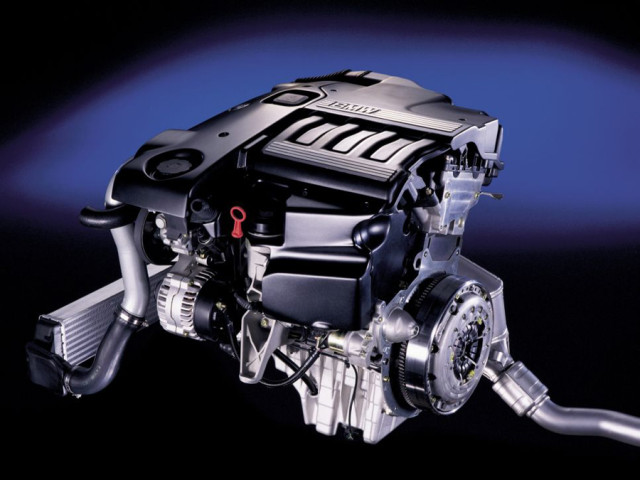
The M47D20. Photo: BMWArchive.org
The M47 succeeded the M41, starting in 1998 and ending in 2007. This was one of the first diesel motors made by BMW to feature common-rail fuel injection, and came in four versions: the M47D20, M47R, M47TUD20, and M47TU2D20. The M47D20 could be found on BMW’s 2001-03 E46 318d, 1999-2001 E46 320d, and 2000-03 E39 520d.
The M47R, meanwhile, was a transverse version of the M47D20. It went to work in the 1999-2004 Rover 75 CDT and 75 CDTi, 2001-06 Land Rover Freelander, and 2001-2004 MG ZT CDT and CDTi.
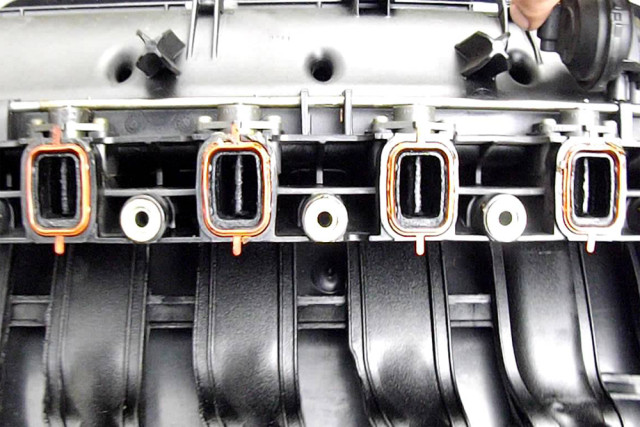
The infamous swirl flaps (shown here in the “open” position) were known to fail and cause damage to the engine. This is because pieces of metal on the flaps would disintegrate and fly into the combustion chamber, where they would mutilate valves and pistons.
The M47TUD20 (the “TU” stands for “Technical Update”) was introduced in September 2001. At two liters of displacement, it was available in 114hp and 148hp versions, and came on the 2003-05 E46 318d, 2001-05 E46 320d, and the E83 X3 2.0d. It had common-rail fuel injection like the M47R, but was hampered by its “swirl flaps” found in the inlets of intake manifolds. Though swirl flaps were intended to help with fuel efficiency, they wound up being more trouble than they were worth, as bits of metal would disintegrate from the flap and then cause damage in combustion chambers. Failures were common, and led to people using blanking plates as a solution.
Another update arrived in 2004 in the form of the M47TU2D20 (boy, these names are getting confusing, am I right?). Here, there were 122hp and 163hp versions available that serviced the 2005-13 E91 320d, 2004-11 E87 118d, 2004-11 E87 120d, 2005-13 E90/E91 318d, 2004-10 E60 520d, and 2003-10 E83 X3 2.0d.
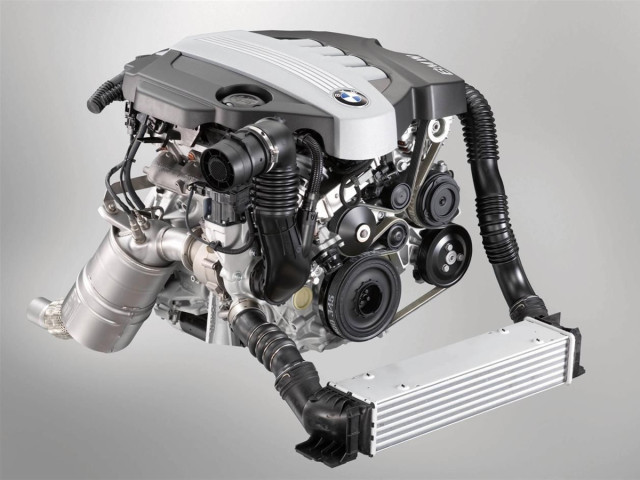
The N47. Photo: sellyourproblemcar.com
The N47 arrived in 2007, succeeding the M47. It was most noted for using the Efficient Dynamics technology suite promoted by BMW at the time, which included common rail fuel injection, a start-stop engine, brake regeneration, and other improvements. Four versions offered various horsepower ratings from 115 to 177 bhp, and a twin-turbo, 204 bhp version was available for the 123d. Variants of the N47 were the N47D16 (1.6L, 95-116 bhp) and the N47D20 (2.0L, 116-218 bhp). A pitfall for the N47 is its timing chain, which can wear prematurely, and the turbocharger wastegate return springs, which could leave the wastegate open and result in poor fuel efficiency.
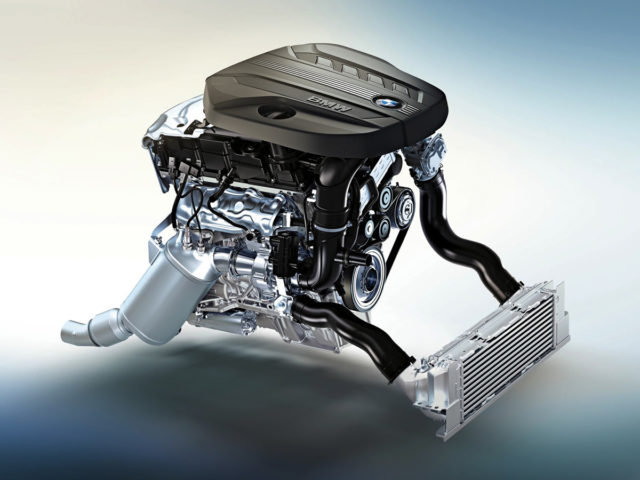
The B47. Photo: AutoEvolution
The B47 showed up in 2014, making its way to several models, including BMW’s 316d, 318d, 320d, and the Mini Cooper SD. It uses a single-scroll, variable geometry Bosch-Mahle turbocharger, and at its peak, can generate 227bhp and 377 lb-ft of torque.
The BMW Straight-Six: M21, M51, M57, N57, And B57
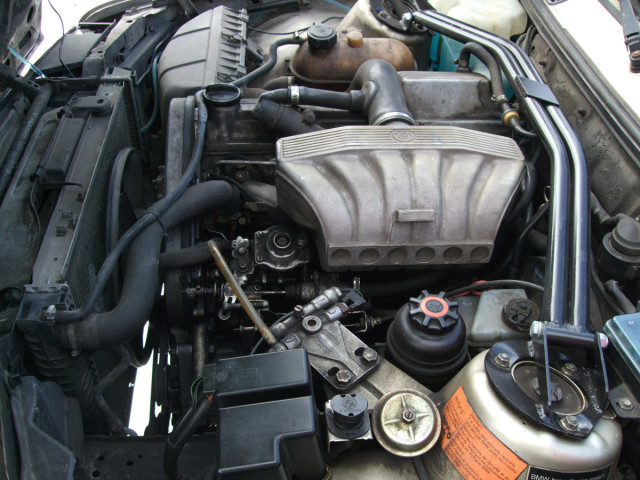
The M21. Photo: Wikipedia
The oil crises of 1973 and 1979 were not to be taken lightly. Some of you may remember the long, long lines of those days just to get gasoline (let alone diesel), and it was not something anyone wanted to revisit. It led to the development of the M21, which ran from 1983 to 1991. The engine was water-cooled (but not intercooled) and had indirect injection, but made use of a swirl chamber, which helped with managing heat in the motor; also, not all versions had a turbocharger. It found its way into BMW’s 1983-88 E28 524td, 1985-93 E30 324td, 1988-91 E34 524td, as well as some other makes and models including the 1984-85 Lincoln Continental and 1989-91 Bertone Freeclimber.
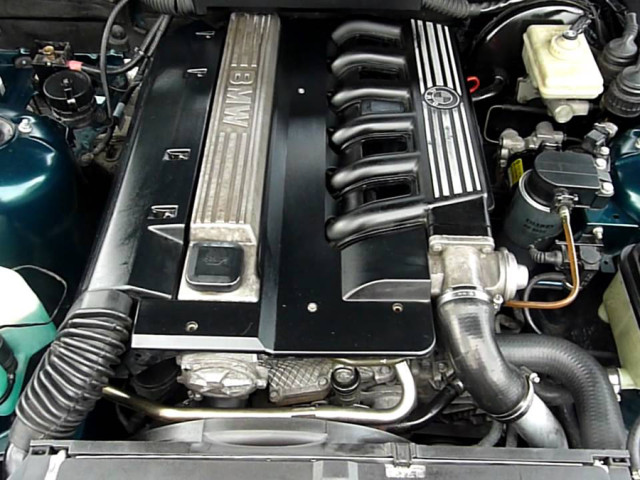
The M51. Photo: YouTube
Succeeding the M21 was the M51 in 1991, which came standard with a turbocharger and an optional intercooler. It had 2.5-liter displacement, two valves per cylinder, and was designed with emissions in mind, using EGR and catalytic converters to help cope with standards at the time. For what it was, it constituted a great improvement over the M21. It could be found in the 1991-96 E36 325tds, 1992-96 E34 525td and tds, among others.
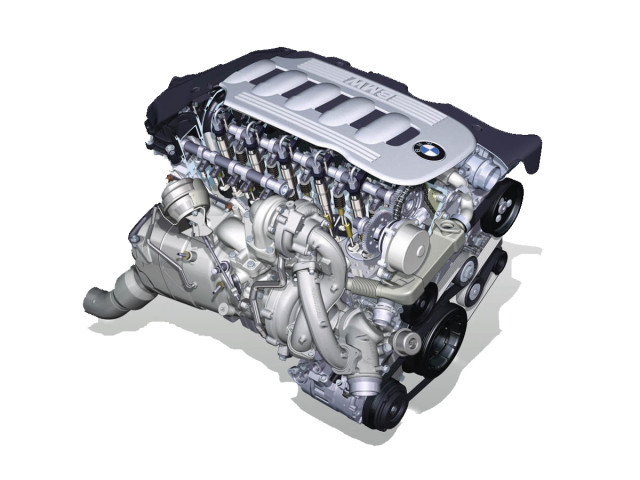
The M57. Photo: BMW Blog
The next step was to move to four valves per cylinder, which came with the M57 in 1998. Though originally made with a cast iron block, the TÜ2 (short for Technische Überarbeitung, “technical revision”) came along in 2006 and had an aluminum block, as well as high-tech piezoelectric fuel injectors for greater efficiency. Some were even available with twin turbochargers, and could generate as much as 282bhp and 430 lb-ft of torque.
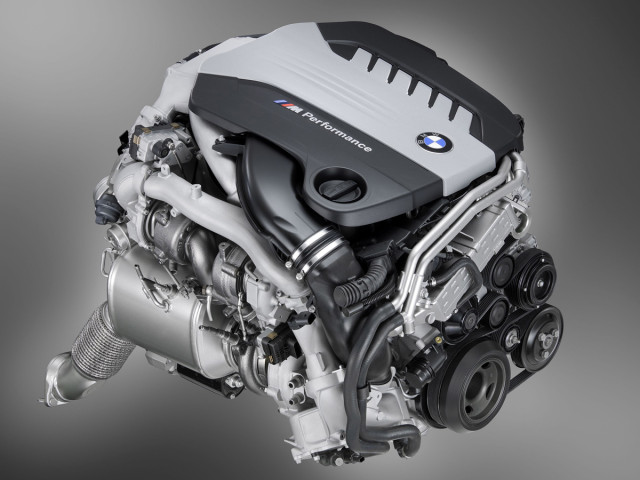
The N57S. Photo: BMW Blog
It was 2007 when the N57 came out. It made a mark on the market in 2012 when a revised version, the N57S, could be ordered with not one, not two, but three turbochargers working to generate 376bhp and 550 lb-ft of torque! It was certainly a shock to get so much power out of just a three-liter straight-six, but BMW found a way to make it work. These engines are still available today in the 2012-present M550d xDrive, 2012-present 750d xDrive, and 2012-present X5 M50d and X6 M50d.
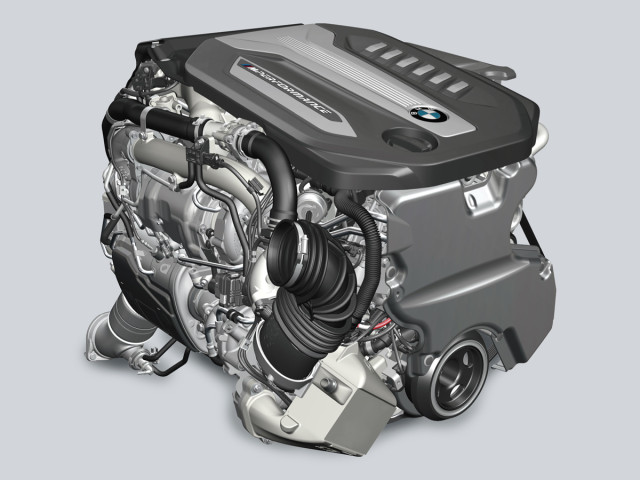
The B57. Photo: BMW Blog
Bringing us up to date is the B57, a three-liter monster operating on four turbochargers (two low-pressure turbos feed into two high-pressure turbos) and producing 393hp and 561 lb-ft of torque. It is supposedly the powerplant for the 750d, and has the remarkable property of achieving 41 MPG on the highway, all while meeting modern emissions standards.
The BMW V8: M67
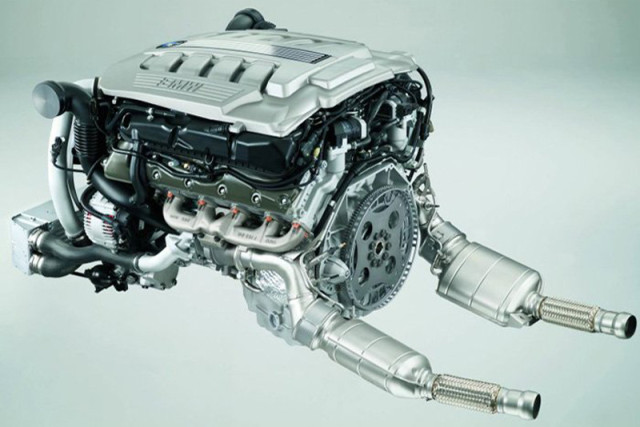
The B67. Photo: 6enligne.net
Finally, we have the M67. Brought about in 1998, it was the only turbodiesel V8 to be made by BMW. It used common rail fueling, double overhead camshafts, and was a 32-valve design. At first, offered in a 3.9-liter version, this was bumped to 4.4 liters in 2005, and by 2006, was capable of making a hefty 329 hp and 552 lb-ft of torque. The V8 went into a few select models, including the 1998-2001 E38 740d, 2002-05 E65 740d, and 2006-09 E65 LCI 745d.
As it turned out, there was a great deal of variety when it came to the BMW repertoire of diesel mills. From tiny little three-bangers to thumping V8s, they all had some interesting facts and features. Which would you like to drive around for yourself? Let us know in the comments below, and stay tuned for our next foreign-born diesel overview: Mercedes-Benz.



